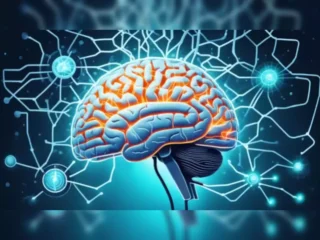New Delhi, 05 October, 2025: When we hear the term heart failure, most of us immediately think of blocked arteries or uncontrolled blood pressure. These are indeed major contributors, but according to leading cardiologists, they’re not the only causes — and sometimes, not even the main ones.
A recent revelation by experts has drawn attention to an overlooked culprit behind heart failure — damage or weakness in the heart muscle itself, a condition known as cardiomyopathy. This discovery has opened new discussions in the medical community about how heart failure develops, how it should be diagnosed, and what prevention really means.
Understanding Heart Failure
Heart failure doesn’t mean that the heart has stopped working completely — rather, it means the heart can’t pump blood efficiently enough to meet the body’s needs. The weakened pumping ability causes blood to back up, leading to shortness of breath, swelling, fatigue, and fluid accumulation in the lungs or legs.
The condition can develop suddenly (acute heart failure) or progress gradually (chronic heart failure). Traditionally, the leading causes have been identified as:
- Coronary artery disease (CAD): Blocked arteries reduce blood flow to the heart muscle, leading to damage or heart attack.
- High blood pressure (hypertension): Constant pressure makes the heart work harder, causing the heart muscle to thicken and weaken over time.
However, recent studies have shown that a growing number of heart failure cases are not linked to either of these causes. Instead, they stem from intrinsic problems in the heart muscle — collectively called non-ischemic cardiomyopathies.
The Surprising Culprit: Cardiomyopathy
Cardiomyopathy literally means “disease of the heart muscle.” In this condition, the heart muscle becomes weak, thickened, or stiff, which prevents it from contracting or relaxing normally. Unlike coronary artery disease, these changes happen even when the arteries are clear and blood pressure is normal.
There are different types of cardiomyopathy:
- Dilated Cardiomyopathy: The heart’s chambers enlarge and the muscle walls thin, reducing pumping efficiency.
- Hypertrophic Cardiomyopathy: The heart muscle thickens abnormally, making it harder for blood to flow.
- Restrictive Cardiomyopathy: The heart walls become stiff and can’t relax properly between beats.
Over time, these abnormalities can cause heart failure symptoms, arrhythmias (irregular heartbeats), and even sudden cardiac arrest.
Dr. Prashant Bhatt, a cardiologist quoted in recent reports, explained, “We often see patients who have normal blood pressure and no signs of artery blockages, yet they develop severe heart failure. This is because the heart muscle itself is diseased — a fact that is frequently overlooked.”
What Causes Heart Muscle Damage?
Heart muscle damage can result from many factors, some preventable and others inherited. The major causes include:
1. Genetic Predisposition
Many cardiomyopathies run in families. Mutations in genes that control heart muscle structure can make the heart vulnerable to weakness, even in young and healthy individuals.
2. Viral Infections
Viruses such as Coxsackie B, adenovirus, influenza, or even COVID-19 can inflame and damage heart tissue — a condition known as viral myocarditis.
3. Toxins and Substances
Excessive alcohol, cocaine, or prolonged use of chemotherapy drugs like doxorubicin can directly injure heart muscle cells, leading to irreversible scarring.
4. Metabolic and Endocrine Disorders
Uncontrolled diabetes, thyroid imbalances, or obesity can strain the heart and alter muscle metabolism.
5. Autoimmune Conditions
Diseases like lupus, sarcoidosis, or rheumatoid arthritis can cause inflammation in multiple organs, including the heart.
6. Pregnancy-Related (Peripartum Cardiomyopathy)
Some women develop heart muscle weakness in the final months of pregnancy or soon after delivery — an often-misdiagnosed yet serious form of heart failure.
Why This Finding Matters
Traditionally, heart disease prevention has focused heavily on lowering cholesterol, quitting smoking, and controlling blood pressure. While these remain vital, the focus on heart muscle health adds a new layer of understanding.
- Diagnosis: Many patients with early muscle disease are misdiagnosed or remain undetected because they do not fit the “typical” heart disease profile.
- Treatment: Therapies for cardiomyopathy differ from those for coronary artery disease. Identifying the root cause helps tailor medication and improve survival.
- Prevention: Awareness of viral, toxic, or genetic factors can lead to early screening, especially for people with family history or recurrent unexplained fatigue.
Symptoms You Shouldn’t Ignore
Cardiomyopathy and early-stage heart failure often develop silently. Recognizing symptoms early can save lives.
Watch for these warning signs:
- Shortness of breath during activity or when lying flat
- Swelling in the feet, ankles, or abdomen
- Rapid or irregular heartbeat
- Persistent tiredness or inability to exercise
- Chest discomfort not linked to exertion
- Unexplained weight gain or fluid retention
- Dizziness or fainting episodes
If you experience these symptoms, even without known high blood pressure or heart attack history, consult a cardiologist for evaluation.
Diagnosing Muscle-Based Heart Failure
Accurate diagnosis is crucial. Cardiologists use several tests to determine if the problem lies in the heart muscle rather than the arteries:
- Echocardiogram (Heart Ultrasound): Reveals size, shape, and pumping efficiency.
- Cardiac MRI: Provides detailed imaging of heart muscle tissue, detecting inflammation or scarring.
- Electrocardiogram (ECG): Detects irregular rhythms or electrical abnormalities.
- Blood Tests: Includes cardiac biomarkers like NT-proBNP and troponin.
- Genetic Testing: Recommended for patients with family history of sudden cardiac death or unexplained cardiomyopathy.
- Coronary Angiography: To rule out artery blockage as the cause.
These tools help doctors differentiate between ischemic (artery-related) and non-ischemic (muscle-related) heart failure — a distinction that guides treatment strategy.
Treatment and Management
Treatment for cardiomyopathy-related heart failure focuses on improving heart function, preventing complications, and treating the root cause.
Medications
- ACE inhibitors / ARBs / ARNIs: Help relax blood vessels and reduce heart strain.
- Beta-blockers: Slow the heart rate and improve efficiency.
- SGLT2 inhibitors: Newer drugs that have shown benefits in heart failure management.
- Diuretics: Relieve fluid retention and swelling.
Lifestyle Adjustments
- Maintain a balanced, low-sodium diet.
- Limit alcohol and completely avoid smoking.
- Engage in light to moderate exercise as approved by a cardiologist.
- Manage stress, diabetes, and thyroid issues.
Advanced Therapies
- Implantable Cardioverter Defibrillator (ICD): Prevents sudden cardiac death in patients at risk of dangerous arrhythmias.
- Cardiac Resynchronization Therapy (CRT): Helps improve pumping efficiency in select patients.
- Heart Transplant: Considered for end-stage cases unresponsive to medical therapy.
With timely diagnosis and proper care, many patients regain a good quality of life and significantly reduce their risk of severe heart failure.
Life Expectancy and Prognosis
The outlook for people with muscle-driven heart failure depends on how early it’s detected and what caused it.
- Reversible causes (such as viral infections or postpartum cases) often recover fully.
- Genetic and advanced cases require lifelong monitoring and medication.
- Early intervention with proper therapy can extend lifespan and reduce hospitalizations.
According to cardiologists, patients who adhere to their treatment plan, avoid toxins, and maintain a healthy lifestyle can live for decades with well-managed heart failure.
Preventing Heart Muscle Damage
While not all causes are avoidable, several proactive steps can protect your heart muscle:
- Get regular checkups, especially if you have a family history of heart disease.
- Control chronic illnesses like diabetes, thyroid disorders, and obesity.
- Avoid alcohol abuse and recreational drugs.
- Stay updated on vaccinations to prevent viral myocarditis.
- Eat heart-healthy foods — fruits, vegetables, whole grains, lean proteins.
- Listen to your body: Early fatigue, swelling, or breathlessness should never be ignored.
The idea that heart failure isn’t always caused by clogged arteries or high blood pressure challenges long-held assumptions. This discovery underscores the need to look beyond traditional risk factors and pay closer attention to heart muscle health itself.
As Dr. Bhatt emphasizes, “A normal angiogram doesn’t always mean a normal heart. The muscle’s condition is equally vital. We must diagnose early to protect the heart before it’s too late.”
Heart disease prevention, therefore, isn’t just about cholesterol and pressure control — it’s about comprehensive care that safeguards every layer of the heart.







